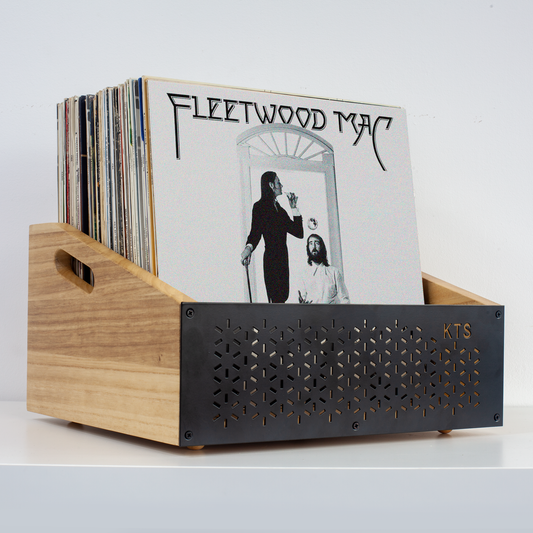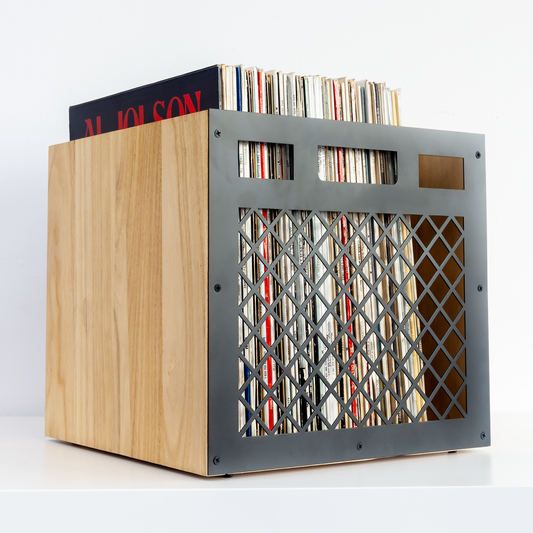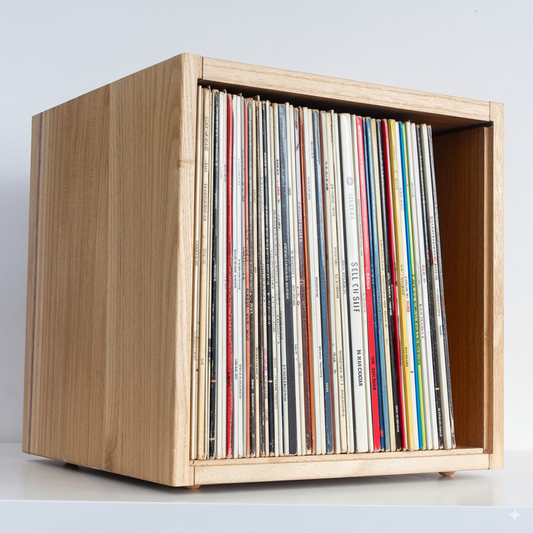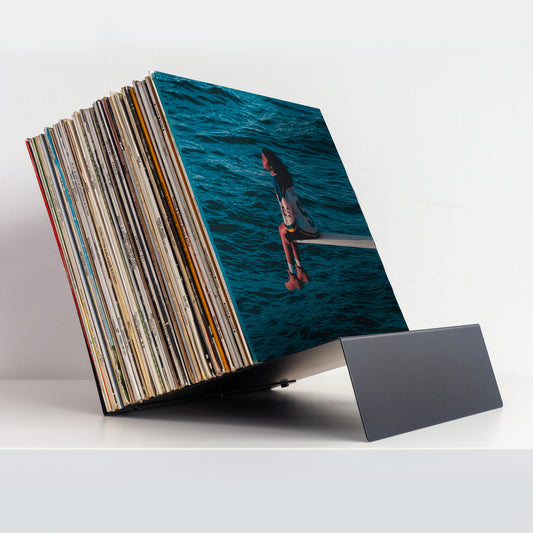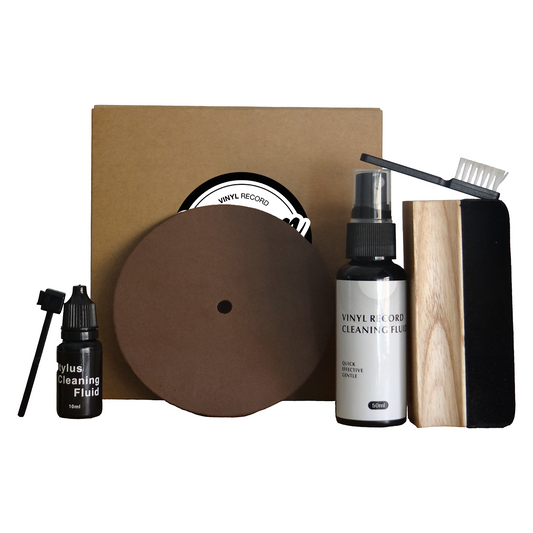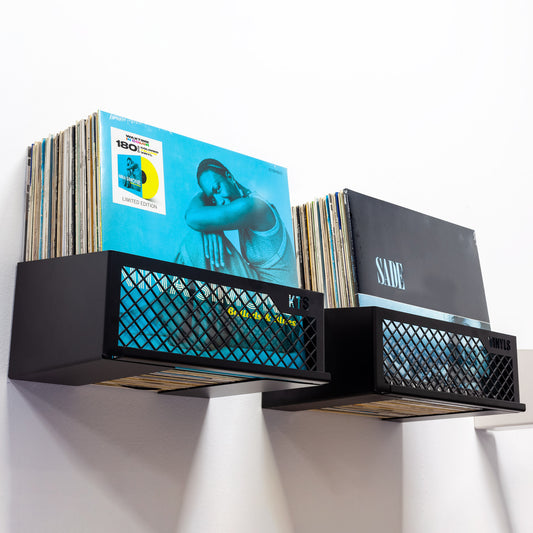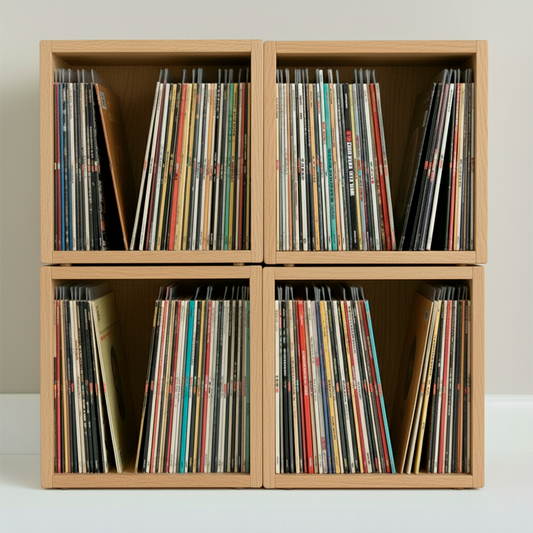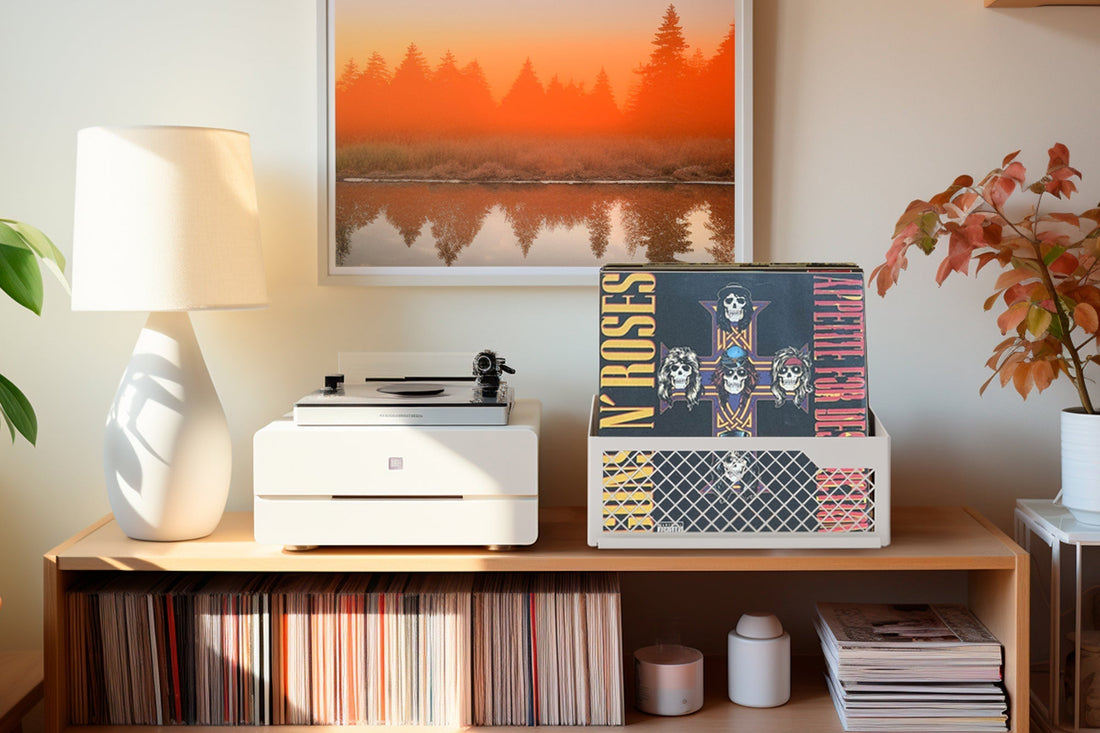
What is the best way to store vinyl records?
Compartir
Complete Guide to Storing and Caring for Vinyl Records
Static
Dust and static are vinyl's worst enemies. Turntables naturally generate static while spinning, drawing in dust particles like magnets. That old-school crackling noise? It’s often just static and debris.
To reduce static:
- Keep the dust cover closed during playback.
- Before shelving your record, use an anti-static brush or cloth to eliminate the charge.
- Consider a high-pressure air blower to remove dust without physical contact.
Handling Vinyl Records
Natural oils from your fingers attract dust and grime. When you touch a vinyl’s grooves, you’re compromising the sound quality.
Tips:
- Always wash and dry your hands before handling records.
- Use nitrile gloves or finger cots if possible.
- Handle records only by their edges and label area.
Cleaning Vinyl Records
Frequent plays lead to smudges, residue, and stubborn dirt in the grooves. Check records under a LED flashlight (or UV light) for buildup.
Tips for a safe deep clean:
- Shield the label to avoid water damage.
- Use deionized water and a microfiber cloth (like Dust Bunny or Evolon).
- Clean the outer sleeve with a lint-free cloth. Remove price stickers using a tacky eraser.
Replacing Inner Sleeves
Old inner sleeves can harm your records:
- Cheap paper sleeves shed fibers and may be acidic.
- Acid can break down vinyl and damage outer jackets.
- Dirty sleeves recontaminate clean records.
Recommendations:
- Use acid-free paper sleeves with anti-static properties.
- Keep valuable original sleeves separately if collectible.
Choosing the Right Storage Area
Storage environment is crucial:
- Avoid heat, humidity, and direct sunlight.
- Keep away from windows, heaters, and external walls.
- Ideal relative humidity: 35–40%. Use a hygrometer and desiccants like Prosorb.
Not recommended:
- Garages, attics, sheds — these areas have fluctuating temps and high moisture levels.
Vertical vs. Horizontal Storage
Always store records vertically:
- Avoid stacking—too much weight damages lower records.
- Use archival, acid-free boxes for long-term storage.
- Separate by size: 12", 10", 7" records should be stored apart.
- Don’t tilt records inside a box or shelf—keep them upright with gentle pressure.
- Fill gaps using acid-free tissue paper.
Bonus: Organization Tips
Use acid-free shelf divider cards to catalog your collection without over-handling. Leave enough space to slide records in and out without rubbing against the edges.
Materials to Avoid
- Avoid wood containers—they often release acids over time.
- Skip drawers or bins made with PVC-based plastics.
Opt instead for:
- 12 vinyl storage case that is acid-free.
- 30x30 storage boxes for space-saving modularity.
- Safe vinyl rack, shelves for wall, or floating shelves designed specifically for vinyl storage.
Whether you’re using a wooden storage box or a professional vinyl cleaner, keeping your records safe and clean makes all the difference.
With care, your vinyl collection will age like fine wine—rich, smooth, and timeless.

